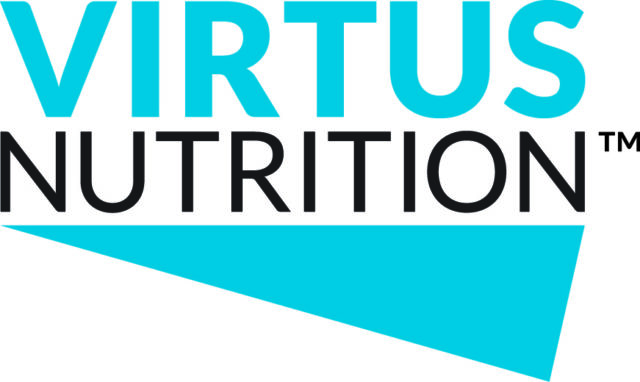Prior to hybridization, incremental improvements made from recombination and selection resulted in very small genetic gains each year. Conversely, the evolutionary advancements made in crop breeding and hybridization led to advancements of 1 to 2 percent genetic gain per year for corn.
Hybrid corn was the first hybrid seed crop introduced to the market in the mid-1930s. Through countless hours of research, hybrid corn has seen yield gains of more than 375 percent compared to its first release.
Corn hybridization
Hybrid corn technology is clearly one of the most significant advancements to benefit corn producers. From 1860 to 1930, corn yields showed very small yield increases, just two bushels per acre for the entire 70-year time period.
After the introduction of hybrid corn technology and the first commercial double-cross hybrid corn release, average yield increased by about one bushel per acre per year. In the 1960s single-cross hybrid corn was introduced to the market.
This advancement in technology brought an additional 1.8 bushel increase per acre per year from 1960 to 1995. Corn breeding advancements made since 1995 can be attributed, in part, to molecular breeding and biotechnology.
Importance of alfalfa
Whether you are a dairy producer, beef producer or commercial hay grower, alfalfa plays a vital role in your operation. With more than 24 million acres of alfalfa harvested in 2008, alfalfa is the fourth-most widely grown crop in the U.S., surpassed only by corn, soybeans and wheat.
In 2008 alfalfa production contributed a total economic value of 10.8 billion dollars to the U.S. economy. In 2008, alfalfa produced 1.37 tons per acre more than other non-alfalfa hay crops, resulting in 70 percent more crop per acre and an increase in hay value by 142 percent per acre.
In addition, scientists believe that new genetics and technology will allow producers to grow alfalfa where they presently cannot, such as wet marshland areas as well as dry sandy soils. Alfalfa breeders modeled their development of hybrid alfalfa after hybrid corn technology.
However, the significant differences between corn and alfalfa plants escalated the difficulty in creating hybrid alfalfa. Thirty years of dedicated research by Dr. Paul Sun and his team of scientists at Dairyland Seed led to release of the first hybrid alfalfa variety.
The msSunstra® system maintains the hybrid yield all the way through to commercialization by controlling pollination. Non-hybrid alfalfas, in contrast, are susceptible to random pollination and inbreeding that reduces yield throughout the development of commercial seed.
Hybrid alfalfa seed production
The breeding process is replicated many times over to develop enough seed to fill the commercial pipeline. Pollination is genetically controlled during the seed increase process, as opposed to physical control (such as detasseling) used in the production of hybrid seed corn.
While the male and female portions of the corn plant are physically distant from each other, the male and female portions of the alfalfa plant are actually within the same floret. Therefore, special male sterile plants must be used to control breeding.
The first hybrid alfalfa
The world’s first alfalfa hybrid was introduced to the market in 2001 and represented the first significant advancement in alfalfa genetics in the previous 20 years. The first hybrid alfalfa consistently delivered 8- to 15-percent yield advantages over non-hybrid competitor alfalfas.
Other features of the first hybrid alfalfa include:
• Increased spring vigor
This allows for earlier cutting and quality with less risk of stress or stand loss.
• Faster regrowth and morevigorous plants
Photosynthesis begins sooner, which allows earlier uptake of water and nutrients, resulting in increased yields.
• Stronger plants
This provides greater forage yield production for three to four years.
The second generation of hybrid alfalfas
Continued advances in technology and alfalfa breeding led to the introduction of the second generation of hybrid alfalfas in June 2009. The second-generation alfalfa not only increases forage yield by an additional 5 percent more than the first hybrid, but also provides increased uniformity and consistency with:
• Various soil types
Second-generation alfalfas have been tested across many different soil types including excellent silt-soil, red clay, marsh ground and irrigated sandy soils.
• Different weather extremes
Second-generation alfalfas have experienced trials in wet establishments with severe disease pressure, dry establishments with severe weed pressure, plus many drought and wet periods.
• All seasons
The second hybrid alfalfa shows strength in spring vigor, summer regrowth as well as fall health in a variety of cutting systems.
• A variety of cutting regimes
The genetics have been tested in three-, four- and five-cut systems as well as on 28- and 35-day cutting schedules. The new hybrid alfalfa can handle aggressive hay cutting and thrives even when cutting is delayed.
• Consistency over the years
Second-generation hybrid genetics have shown strength in establishment and persistence. The hybrid alfalfa continues to win trials even as the stands get older. In addition to yield advantage and increased plant uniformity and consistency, hybrid alfalfas also grow a finer stem, which shortens dry-down time and increases palatability.
Producers have observed this increased palatability through increased dry matter intake as well as in side-by-side grazing scenarios. Over the past 10 years alfalfa has made significant yield gains. The introduction of the first hybrid alfalfa increased genetic yield gain by 0.34 percent per year.
Through increased technological advancements and the introduction of second-generation hybrid alfalfas genetic gains have almost doubled to 0.67 percent per year. With continued genetic progress, experts suggest that hybrid alfalfa could gain more than 1 percent genetic yield gain per year well into the future.
The hybridization of corn significantly impacted crop quality and yield in a short period of time and should be indicative of a bright future for alfalfa producers. Based on genetic progress made with hybrid corn, the surface has just been scratched with alfalfa yield gains and many advances are yet to come. FG
Mike Velde
Alfalfa Breeder
Dairyland Seed
mvelde@dairylandseed.com









